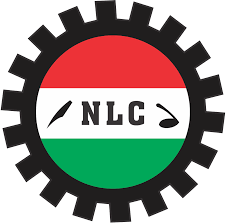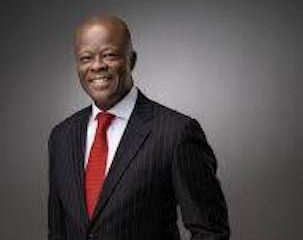NEWS
NLC urges FG to Expedite Action Towards Resuscitating Textile Industry

The Nigeria Labour Congress (NLC), has called on the Federal Government to take urgent steps towards resuscitating the country’s textile industry.
NLC President, Mr Joe Ajaero, made the call at the 13th National Delegates Conference of the National Union of Textile Garment and Tailoring of Nigeria (NUTGTWN), on Tuesday in Abuja.
Ajaero explained that the call was imperative considering the sector’s potential for creating huge direct and indirect jobs through its value chain.
Describing the sector as pivotal to the nation’s economic growth and development, the NLC boss stressed the need for relevant authorities to join hands and mobilise the needed resources to resuscitate the sector.
“It is not merely a sector of economic activity but a cornerstone upon which the foundation for sustainable industrialisation is built.
“The textiles industry has historically been a major employer of labour, thereby contributing significantly to job creation and economic growth of our nation.
“This, in the long run, will foster inclusive growth and prosperity,” he said.
He acknowledged efforts by previous administrations to revive the sector, adding however, that the efforts did not yield the desired results.
The NLC president recalled that the government had at different times, allocated billions of naira under the Textile Revival Implementation Committee to revamp the cotton, textile and garment sub-sector of the economy.
“One wonders what has happened to all these funds. Were the funds ever accessed or were they mismanaged or misapplied?
“Nigerians would want to know what happened and why the sector is still struggling despite the purported injection of these funds,” he said.
Ajaero said that the theme, “Building Union Power for Sustainable industrialisation and the Future of Work”, was carefully chosen to offer hope to the struggling trade unions in the country.
He added that the theme also epitomises the resilience and vision of the trade union movement in navigating current challenges.
He stressed that understanding what the theme entails would help trade unions to checkmate the forces that have kept not just the textile industry down, but the entire nation’s economy.
He, therefore, commended the union for its unwavering commitment and tireless efforts in advancing the interests of its members and the broader labour movement.
In his remarks, Sen. Adams Oshiomhole (Edo North-APC), called on labour leaders to interrogate the implementation of government industrial policies to ensure value for money.
This, according to him, will help to ensure that policies of government are not only formulated but implemented for Nigerians to reap the benefits.
“You must ask what went wrong in the textile industry; that is the way we can find sustainable solutions.
“Every government need pressure points, as such, labour leaders must be united and hold government to account with a loud and coherent voice,” Oshiomhole said.
On his part, NUTGTWN President, Mr John Adaji, said that the key to real transformation and economic recovery lies in manufacturing.
“The textile industry alone, if fully operational, has the capacity to create millions of decent jobs, thereby, bridging the huge unemployment gap in the country.
“Today, the cotton, textile and garment sub-sector of the economy, which used to be the second largest employer of labour after the public sector, is on a steady decline due textile companies closure, leading to massive job losses.
Adaji attributed part of the problems to unrestrained smuggling and importation of textile products. (NAN)
NEWS
Breaking: George Akume remains SGF – Presidency

The presidency says there has been no change in the status of Senator George Akume, as Secretary to the Government of the Federation.
This is according to a statement by Special Adviser to the President on Information and Strategy, Bayo Onanuga.
Mr Onanuga says President Bola Tinubu, currently in Saint Lucia, has not made any new appointments.
He described the information circulating about Akume’s replacement as untrue, adding that agents of mischief fabricated it.
GeorgeAkume
sgf
NEWS
Diri Campaigns Against Drug Abuse, Trafficking

From Mike Tayese, Yenagoa
Bayelsa State Governor, Sen. Douye Diri yesterday, led a campaign against drug abuse and illicit trafficking as part of activities commemorating the International Day Against Drug Abuse and Illicit Trafficking.
Diri advised people of the state, particularly the youths, to shun hard drugs and trafficking of illicit substances, saying they were harmful to their health and to the society.
The Bayelsa governor, who spoke shortly after the weekly Prosperity Walk exercise at the Samson Siasia Sports Complex in Yenagoa, also urged youths to develop themselves by acquiring a skill and work towards actualising their God-given potential.
“We just completed a nine to 10km walk, which is a test of our fitness. As it is said, health is wealth.
“Today is the International Day Against Drug Abuse and Illicit Trafficking. We are not only observing the global campaign, we are also leading it here in Bayelsa.
“No one in his right senses goes to commit crime and violent acts except that individuals are under the influence of hard drugs. My advice to youths is to be self-confident, have the fear of God and develop your innate potential for you to become a star.”
He implored youths to emulate the shining example of a Bayelsa-born United States-based athlete, Victory Godah, who was discovered through the state’s sports programmes.
He commended her gesture of donating sporting equipment as a way of giving back to the state.
“Victory Godah from Ekeremor local government area was discovered here and because of her skill, she is now at the University of Minnesota, United States. She has given back to the state through sports equipment so that more of us can have that access.”
In his remarks, the Commissioner for Health, Prof. Seiyefa Brisibe, emphasised the importance of the weekly walk, stating that participants above 40 years would have their blood pressure controlled after taking about 5,000 steps.
Also, state chairman of the Drug Abuse, Addiction, Prevention and Rehabilitation Committee, Dr Peter Owonaro, said the committee’s outreach in the state had been a huge success, noting that a recent research indicated that the drug abuse prevalence rate in Bayelsa dropped by five per cent from 21.4 per cent.
Also, the state commander of the National Drug Law Enforcement Agency (NDLEA), Kanu Sunny, lauded the state government for its unprecedented support in the fight against drug abuse and trafficking.
He said the campaign was taken to secondary schools as well as tertiary institutions and encouraged all to join in the war against the menace.
Foreign News
Ally of Cameroon President, 92, Quits ‘Broken’ Government to Challenge Him

Issa Tchiroma Bakary – a prominent minister and long-time ally of President Paul Biya – has quit Cameroon’s government, in the hope of ending 92-year-old Biya’s four-decade grip on power in upcoming elections.
Just four months before the central African nation went to the polls, Tchiroma said the Biya administration he belonged to had “broken” public trust and he was switching to a rival party.
“A country cannot exist in the service of one man,” he said on Wednesday.
While he was communications minister, Tchiroma notably came under fire for denying – then backtracking on his denial – that Cameroonian soldiers had killed women and children in a viral video.
His other roles during almost two decades in government include being a spokesman for the Biya government, and, until his resignation on Tuesday, he was employment minister.
Paul Biya – the world’s oldest head of state – has yet to confirm if he will attempt an eighth term as president. Last year, the country banned reports on the president’s health following rumours he had died.
As this election approaches, high unemployment and soaring living costs are of concern to many Cameroonians, as are corruption and security. A separatist insurgency in the English-speaking provinces as well as jihadists operating in the northernmost region have forced many thousands of Cameroonians from their homes in the past decade.
Cracks in Tchiroma’s relationship with President Biya were blown open earlier this month, when he told crowds in his home city of Garoua that Biya’s time in power had not benefited them in any way.
Tchiroma, widely reported to be 75, continued this criticism in a 24-page manifesto released a day after his resignation – promising to dismantle “the old system” so that Cameroon could move beyond “abuse, contempt, and the confiscation of power”.
One of his proposed solutions is federalism – he is offering to hold a referendum on devolving more power to Cameroon’s 10 provinces. This has long been mooted by many as a solution to the country’s so-called Anglophone crisis.
Specifically addressing English-speaking Cameroonians, who have long complained of marginalisation and discrimination in Francophone-dominated public institutions, he said “you do not need people to speak for you – you need to be listened to” and that “centralisation has failed”.
Tchiroma also used his manifesto to say Cameroon “has been ruled for decades by the same vision, the same system. This model, long presented as a safeguard of stability, has gradually stifled progress, paralysed our institutions, and broken the bond of trust between the state and its citizens”.
As the October presidential election approaches, rights groups have condemned the government’s crackdown on dissent.
Shortly after Tchiroma announced his plans to run for the presidency, the government reportedly announced a ban on all political activities by his Cameroon National Salvation Front (CNSF) party in a sub-district of the Far North region – a part of the country where he is said to be an influential power-broker.
Weeks earlier, fellow presidential hopeful Maurice Kamto had his movements curtailed during a two-day police stakeout in Douala, after promising supporters at a rally in Paris that he would protect Biya and his family if he wins in October.
Parliamentary elections that were also supposed to take place earlier this year have been delayed until 2026.
Reaction to Tchiroma’s presidential bid has been mixed – some think he is canny.
“By positioning himself as the elder statesman who ‘saw the fire coming’, Tchiroma is hedging that his break with Biya will be seen as bold – not opportunistic,” Cameroonian analyst and broadcaster Jules Domshe said.
“From economic fallout to youth unemployment, insecurity, and growing unrest in the North-West, South-West, and Far North [regions], Cameroon is ripe for change.”
Opposition voices are divided – some want Tchiroma to support Kamto, who was the runner-up in 2018 with 14% of votes. But others say he is tainted by his long association with Biya.
“He cannot embody change… He was part of the system for too long. The youth do not trust him,” says Abdoulaye Harissou, a legal notary and prominent critic once detained by the government.
Another member of the opposition – Jean Michel Nintcheu of the APC coalition – simply said: “We don’t see Tchiroma as a potential winner.”
| ReplyReply allForwardAdd reaction |






























